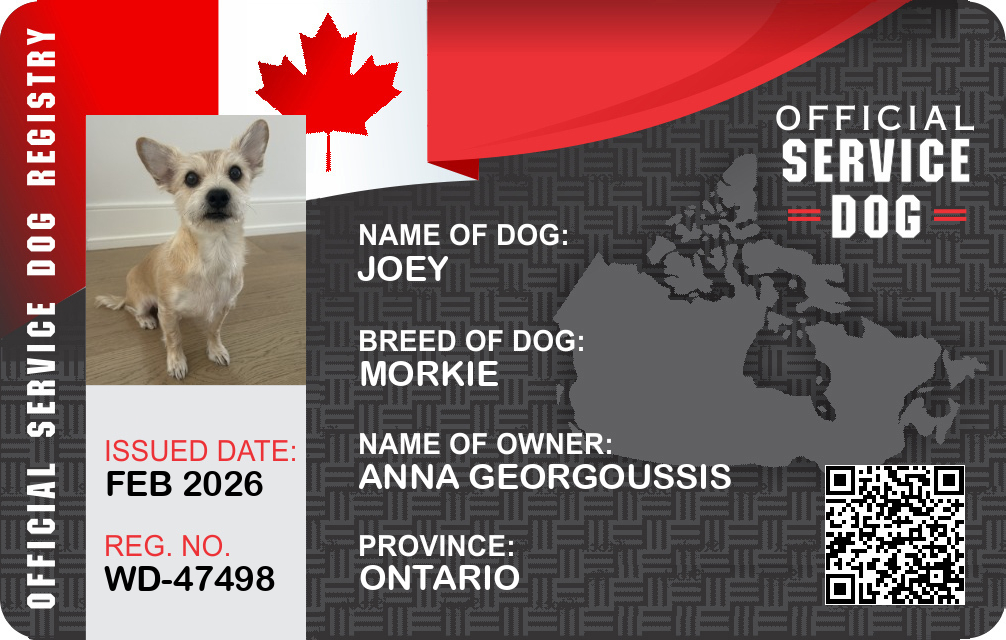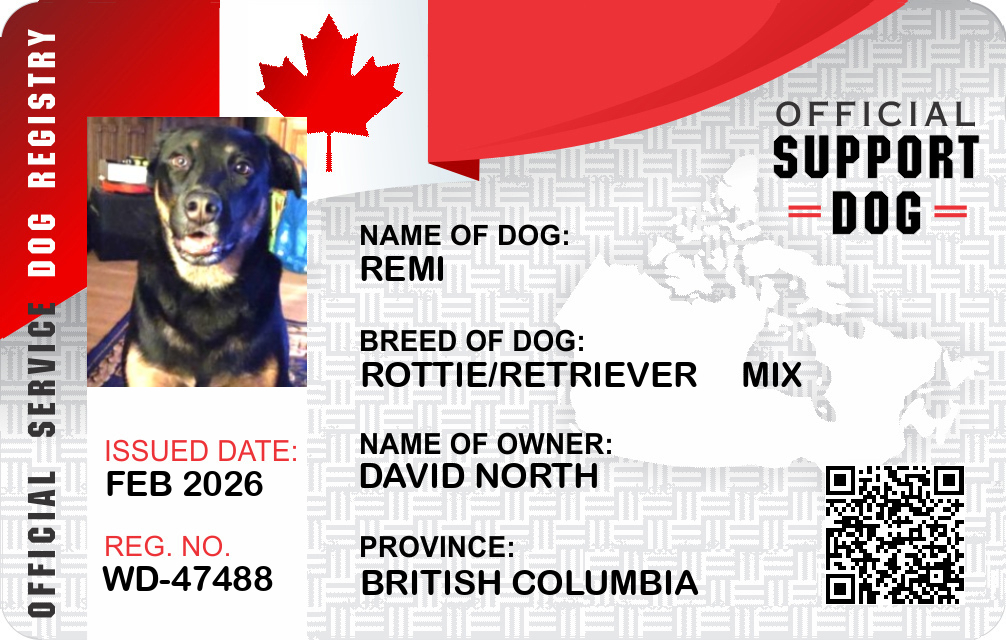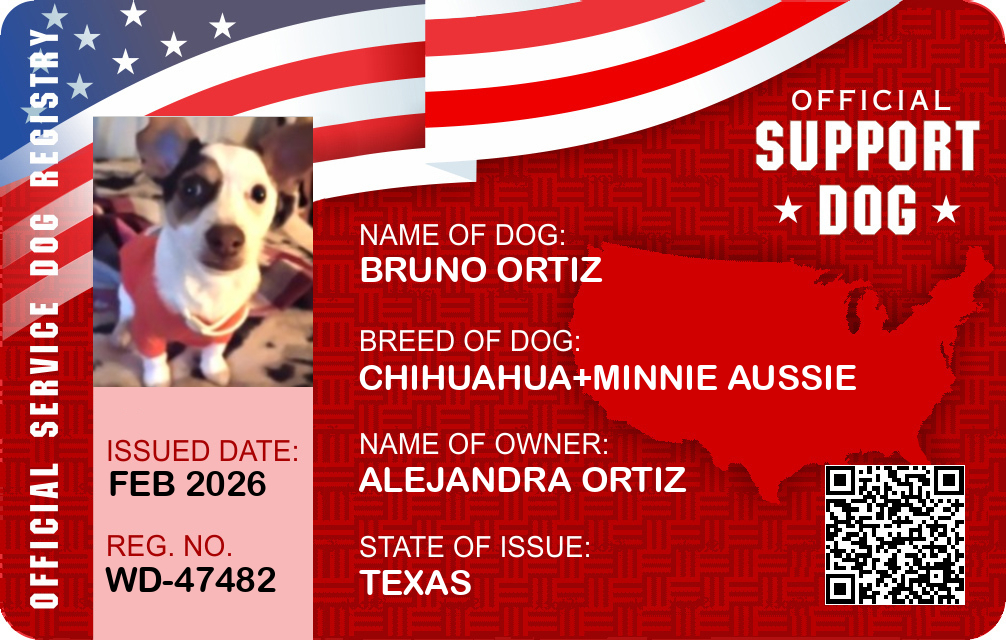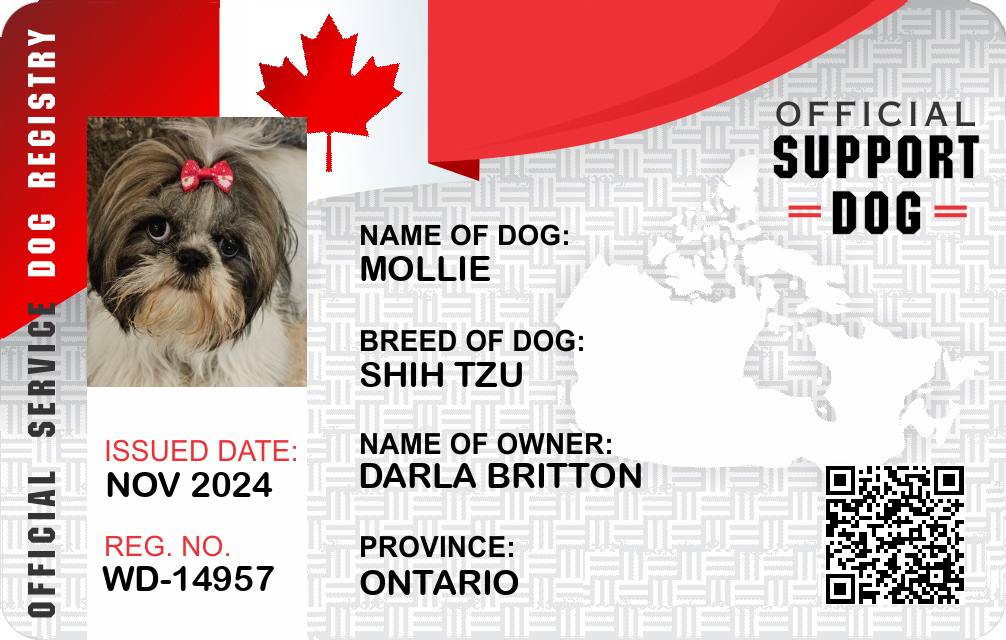New York Emotional Support Animal Laws
Get Your Documents
Example State Cards

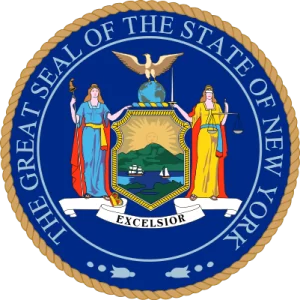
Overview of ESA and Legal Definitions in New York
What is an Emotional Support Animal?
An Emotional Support Animal (ESA) is an animal that provides comfort and emotional well-being to individuals with mental or emotional disabilities. Unlike service animals, ESA do not require specialized training to perform specific tasks for their owners. Instead, their mere presence is intended to alleviate various psychological symptoms associated with conditions like anxiety, depression, or PTSD. In New York, as in the rest of the United States, an ESA can be any type of animal, though dogs and cats are the most common.
How ESA Differ from Service Animals
Service animals are specially trained to perform tasks that directly relate to an individual’s disability, such as guiding visually impaired persons or alerting hearing-impaired individuals to sounds. In contrast, ESA do not perform specialized tasks; their primary role is to provide therapeutic comfort through companionship. Importantly, this distinction affects their legal status: under the Americans with Disabilities Act (ADA), only service animals are granted access rights to public places like restaurants and stores, whereas ESA do not enjoy such privileges.
Key Federal Laws Affecting ESA (e.g., FHA, ACAA)
Two significant federal laws impact ESA: the Fair Housing Act (FHA) and the Air Carrier Access Act (ACAA). The FHA requires housing providers to make reasonable accommodations for individuals with ESA, even in properties with no-pet policies, preventing discrimination against those needing emotional support animals. Under the ACAA, until recently, airlines were required to allow ESA to travel in the cabin with their owners. However, as of 2021, airlines are no longer mandated to accommodate ESA, though they must still provide access for service animals.
State-Specific ESA Laws in New York
Housing Rights and Responsibilities
In New York, ESA owners are protected under the FHA, meaning landlords and housing providers must allow ESA as a reasonable accommodation. Landlords may not impose pet fees or breed and size restrictions on ESA. However, owners can be held liable for any damage their ESA causes. Additionally, landlords are permitted to request documentation from a medical professional verifying the need for an ESA.
Public Access and Accommodation
While service animals have broad access to public spaces under the ADA, ESA in New York do not share these rights. Businesses, restaurants, and other public establishments are not required to allow ESA. It is essential for ESA owners to understand this limitation to avoid legal issues or refusal of entry.
Transportation and Travel Rules
The New York public transportation system follows the federal laws regarding ESA. Although the ACAA no longer mandates that airlines accommodate ESA, within New York, local modes of transportation like buses and trains are generally not required to allow ESA, unlike service animals. Owners are encouraged to check specific policies of transit authorities or airlines they intend to use.
Employment and Workplace Considerations
While the ADA requires employers to provide reasonable accommodations for employees with disabilities, this does not automatically extend to allowing ESA in the workplace. In New York, decisions on ESA in workplaces are made on a case-by-case basis, considering whether the presence of the animal provides a reasonable accommodation and does not impose undue hardship on the employer.
Documentation, Requirements, and Processes in New York
ESA Letters and Who Can Issue Them
An ESA letter is a document from a licensed mental health professional affirming the individual’s need for the animal for emotional support. In New York, such letters must be issued by authorized practitioners, including psychologists, psychiatrists, social workers, or therapists familiar with the individual’s condition. The letter should detail the professional relationship with the patient, the patient’s need for the ESA, and the specific benefit the animal provides.
Landlord, Business, and Provider Verification Rules
Landlords can verify an ESA letter by confirming the validity of the issuing professional’s license and the relevance of their qualifications to the individual’s condition. However, they should respect privacy and not request detailed medical records. Businesses outside of housing or transportation sectors are generally not entitled to request or verify ESA documentation due to the lack of public accommodation rights for ESA.
Rights, Limitations, and Legal Risks
Rights ESA Owners Have in New York
ESA owners in New York benefit from several legal protections, primarily in housing, where they cannot be discriminated against due to their reliance on an ESA. They retain the right to live with their ESA despite no-pet policies in housing and are not liable for extra fees that are typical for pet owners.
Limits on ESA Protections and Common Restrictions
Significantly, ESA are not granted unimpeded access to public areas, workplaces, or transportation in the same way that service animals are, restricting where they can accompany their owner. Additionally, owners may face limitations based on specific building or airline policies, particularly given the changing landscape of ESA regulations post-2021.
Penalties for Fraud or Misrepresentation
Misrepresenting an animal as an ESA or a service animal can lead to legal consequences in New York. Potential penalties include fines and, in some cases, more severe repercussions if fraudulent activities are involved. It is crucial for ESA owners to adhere to honest and transparent documentation practices.
Practical Guidance for ESA Owners in New York
How to Qualify for an ESA Legitimately
To qualify for an ESA in New York, individuals should have a verifiable emotional or mental disability recognized by a licensed mental health professional. The first step is consulting with a licensed therapist or psychiatrist who can evaluate and confirm the benefit provided by an ESA, thus generating an official ESA letter.
How to Talk to Landlords, Airlines, and Employers
When discussing ESA needs, ESA owners should be prepared to provide a legitimate ESA letter. Communicating clearly and professionally while respecting the counterpart’s policies will aid in avoiding misunderstandings. Owners should articulate their rights under the FHA for housing matters concisely, without presenting ESA requirements as demands.
Summary of ESA Laws in New York
- Emotional Support Animals provide companionship and comfort to individuals with mental or emotional disabilities, differing from service animals as they require no specific training.
- Federal laws, like the Fair Housing Act, ensure housing rights for ESA owners, while the Air Carrier Access Act no longer requires airlines to accommodate ESA.
- In New York, ESA housing rights include exemption from pet fees and size or breed restrictions, yet public and workplace access rights are limited.
- Legitimate ESA documentation must come from a licensed mental health professional, discounting unauthorized registries and certifications.
- Legal risks for misrepresenting an animal as an ESA can lead to fines and consequences; ethical and lawful compliance is crucial.
- ESA owners should maintain open and professional communication with landlords and avoid fraudulent ESA-related services to ensure their rights and responsibilities are clear-cut and respected.
By understanding these key points, ESA owners in New York can effectively navigate their legal rights and responsibilities, ensuring that their needs and the requirements of their companions are met in a lawful manner.
Get Your Documents
Example State Cards





